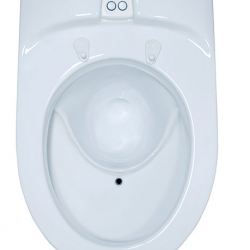Antiviral drugs will be a necessary addition to vaccines to tamp down COVID. Both Pfizer and Merck have drugs in the clinic and they both look good. Roche also has a candidate but things are looking pretty grim. How grim? Better read this.
Atea Pharmaceuticals, which is (was?) co-developing another COVID antiviral drug with Roche called AT-527, issued a press release last week. Although the company acknowledged that the drug failed to do anything in a Phase 2 called MOONSONG (1), there was nonetheless a bit of spin in the announcement. Let's translate it.
Atea and Roche are jointly developing AT-527 as an oral direct-acting antiviral (DAA) for the treatment of COVID-19. Its unique mechanism of action, with dual targets including chain termination (RdRp)...
The strategy is sound and has precedent. RdRp is an abbreviation for RNA-dependent RNA polymerase. RNA polymerases are the enzymes used by RNA viruses to synthesize new genetic material that will enable them to replicate. When this enzyme is inhibited, viral replication comes to a screeching halt. Gilead (2) used this strategy in the battle against hepatitis C (HCV) and came up with Solvaldi (sofosbuvir) – the first directing antiviral drug to completely cure the majority of people infected with HCV (3). So, it is not surprising that AT-527 was originally developed as a drug for HCV.
Consistent with previous studies, AT-527 was generally safe and well tolerated. In the MOONSONG study, the proportion of patients experiencing any adverse event (AE) was 20% in the placebo group, 20% in the AT-527 550 mg BID group
Whenever a drug-treated cohort experiences the same frequency of side effects as the placebo group, this is a strong indicator of short-term safety.
Atea has completed a comprehensive nonclinical program to characterize the safety profile of AT-527. Results from these nonclinical studies demonstrate that AT-527 is non-mutagenic and has no effects on fertility and reproduction.
Although mutagenicity is a red flag in drug development, molnupravir is mutagenic in certain assays. This becomes less of an issue for a drug that will be administered for a few days.
AT-527 in the outpatient setting did not meet the primary endpoint of reduction from baseline in the amount of SARS-CoV-2 virus in patients with mild or moderate COVID-19 compared to placebo
There are two ways to look at this: bad and really bad. If an antiviral drug doesn't decrease viral loads in people who are infected, it's extremely unlikely that it will have clinical utility.
In the overall study population, of which approximately two thirds of patients were low-risk with mild symptoms. However, in high-risk patients with underlying health conditions, a reduction of viral load of approximately 0.5 log10 at Day 7 was observed...
Don't let this fool you. A 0.5 log10 reduction (three-fold) might as well be zero. For some perspective, sofosbuvir reduced the viral load of HCV in patients by 10,000-100,000 (104-105) fold within 1-2 weeks.
Based on the totality of the results for AT-527 to-date, the current level of understanding of the virus and the evolving COVID-19 environment, we are assessing the Phase 3 MORNINGSKY trial for modifications to ensure the best possible outcome for the program...
This is drug-company speak for "when hell freezes over." It would be insane to run a Phase 3 trial based on these results.
Is AT-527 doomed? Unfortunately, it looks this way.
NOTES:
(1) Clinical trials have acronyms. Most of the time they are really dumb.
(2) Sovaldi was actually discovered at Pharmasset, which was purchased by Gilead for $11 billion in 2012.
(3) Two years before Solvaldi was approved, both Schering/Merck and Vertex launched HCV protease inhibitors, which were really the first direct-acting antiviral drugs for HCV. Innovative, very. Financially successful, no way. Both drugs fell off the map when Solvaldi came out.

